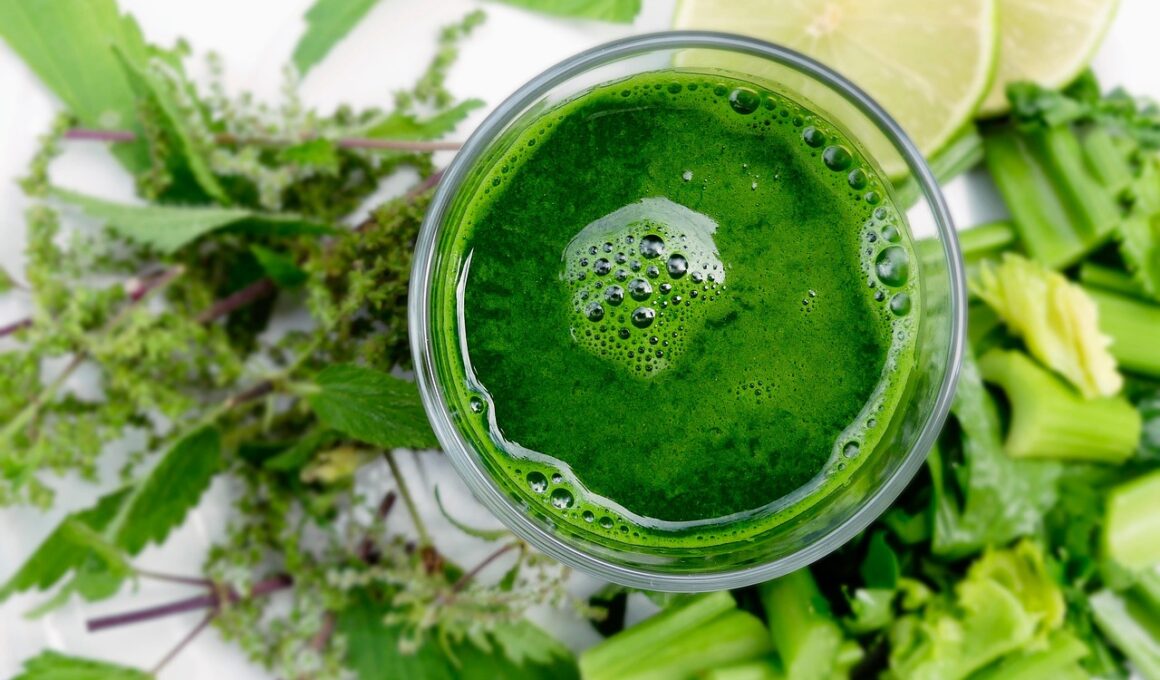The Role of Exercise During a Colon Cleanse Diet
Colon cleanse diets are gaining popularity as a method to detoxify the body, promoting better digestive health. During these diets, people often focus solely on their food choices, overlooking that exercise plays a crucial role in this process. Incorporating physical activity can enhance the effectiveness of a colon cleanse, accelerating the detoxification process and supporting overall well-being. Regular exercise stimulates bowel movements and can help maintain intestinal health, flushing out toxins and waste more efficiently. When engaging in exercise, it is essential to choose activities that you enjoy, ensuring you stay motivated and consistent throughout the cleanse. A balanced mix of cardiovascular workouts, strength training, and flexibility exercises can provide the best results. Activities such as walking, jogging, yoga, or swimming can significantly contribute to the effectiveness of a colon cleanse diet. Also, it is beneficial to consult with a healthcare professional before starting any new fitness regimen while on a cleanse, ensuring that you’re addressing your individual health concerns and optimizing the benefits of both diet and exercise for superior results in your cleansing journey.
During a colon cleanse diet, proper hydration is key. Exercise naturally increases the body’s need for fluids, and ensuring adequate water intake can enhance the detoxification process. Drinking sufficient water can help the colon eliminate waste more effectively and support overall cellular functions. Aim for at least eight glasses of water daily, and consider incorporating hydrating foods such as cucumbers, watermelon, and oranges into your diet. These foods not only keep you hydrated but provide essential nutrients that support energy levels during your workouts. Moreover, electrolytes in beverages like coconut water can replenish minerals lost during exercise, helping maintain balance. As your colon cleanse progresses, you may experience fatigue or low energy levels; however, engaging in moderate exercise can alleviate these symptoms. Gentle movements like stretching or light walking can boost circulation, help clear the mind, and improve mood. Moreover, exercise can also act as a stress reliever during a colon cleanse. Managing stress is essential, and participating in activities you enjoy can support both mental and physical health while recovering.
Choosing the Right Exercises
When undertaking a colon cleanse diet, it’s crucial to select appropriate exercises that align with how you feel. As your body detoxifies, you may experience temporary discomfort or fatigue. Low-impact activities such as yoga, tai chi, or Pilates can be beneficial during this time, focusing on breathing and relaxation. These types of exercises are gentle on the body while enhancing flexibility and promoting mental clarity. As you progress in your cleanse, you may gradually introduce more vigorous workouts like running or weightlifting, keeping an eye on your body’s responses. Listening to your body is paramount; if fatigue sets in, opt for restorative activities that promote relaxation and rejuvenation. Always ensure a suitable warm-up and cool-down period during exercise sessions. Warming up prepares the body for physical activity, while cooling down helps maintain flexibility and prevents injuries. Additionally, if you feel experienced pain or discomfort, scale back your routine, emphasizing a balance between exercise and rest. Ultimately, the right choice of exercises can make your colon cleanse both productive and enjoyable, supporting your detox journey.
Incorporating strength training into your regimen during a colon cleanse diet can also provide unique benefits. Resistance exercises help enhance muscle tone and metabolism, complementing the detoxification process effectively. Building muscle contributes to better fat burn, which can help support weight loss goals often associated with colon cleanses. Moreover, engaging in strength training exercises can improve gut health by increasing gut bacteria diversity, leading to enhanced digestion and absorption of nutrients. This is particularly important while following a restrictive diet. It’s recommended to start with light weights or body-weight exercises and gradually progress as your strength and energy return. A structured program focusing on major muscle groups—such as squats, lunges, push-ups, and planks—can be incredibly effective. Aim for two to three sessions a week, allowing adequate recovery between workouts. This approach promotes healing and strengthens the body as it eliminates waste. Importantly, while the goal of a colon cleanse is to detox, maintaining muscle mass through strength training keeps your body resilient. This practice can enhance your overall well-being, making the cleanse experience a holistic journey toward better health.
Listening to Your Body
Practicing self-awareness during a colon cleanse is vital, especially concerning your exercise regimen. Your body may react differently as you progress through different dietary stages, making it essential to listen to its signals. Feeling tired or lethargic can be a cue to reduce the intensity of your workouts. While maintaining an active lifestyle is imperative, moderation can ensure that you’re not overwhelming your system during this detox phase. It’s perfectly acceptable to substitute high-intensity workouts with gentler alternatives tailored to your energy level. Adjusting your routine is crucial during this time, as pushing too hard may lead to negative effects on your overall cleansing process. Take note of how your body feels before and during each exercise session; this practice can lead to improvements in both your physical and mental states. Engaging in relaxation techniques such as deep breathing or meditation post-exercise can further amplify the benefits of your cleansing diet. Also, do not hesitate to take rest days—this is a critical component of your overall progress, allowing your body to recover and rejuvenate for optimal health benefits.
As with any diet, maintaining balance between nutrition and exercise is essential during a colon cleanse. Nutritional choices significantly affect your energy levels, making it crucial to consume balanced meals providing the nutrients necessary for your workouts. Focusing on whole foods, including fruits, vegetables, lean proteins, and healthy fats, will fuel your body and assist in a successful cleanse. Planning your meals ahead of time can help prevent poor food choices and maintain a well-rounded diet. Additionally, consider nutrient-dense snacks, such as nuts or seeds, to provide sustained energy during the day and during workouts. Not only will these foods keep energy levels stable, but they also contribute fiber—a vital component of a colon cleanse. Fiber aids in improving bowel movements, which is the primary goal of such diets. This balance also extends to timing your workouts around meal consumption; exercising on a full stomach may cause discomfort when detoxing. Instead, aim to work out at least 1-2 hours after a meal, allowing your body the time it requires to digest efficiently.
Conclusion: The Importance of Exercise
Combining exercise with a colon cleanse diet can yield exceptional health benefits. The process of detoxification becomes more effective when paired with physical activity, leading to enhanced results. Your body deserves the best in both nutrition and exercise, and the synergy created during this journey can facilitate significant improvements in health. As you cleanse your colon, exercise not only aids in waste elimination but also maintains muscle health, flexibility, and mental clarity. Consider this period an opportunity to establish a sustainable lifestyle that includes regular physical activities, healthy eating habits, and mindfulness. Engaging in enjoyable exercises fosters commitment and can lead to long-term benefits beyond the duration of the cleanse. Remember also to consult with a healthcare professional to tailor your exercise routine and diet to your individual needs, particularly during detoxification. Ultimately, by incorporating regular movement into your cleanse, you build a solid foundation for a healthier and more balanced life approach, leaving you renewed and rejuvenated, ready to embrace a more vibrant you after your colon cleanse journey.
In summary, exercise significantly contributes to the efficacy of a colon cleanse diet. Embracing physical activity ensures healthy bowel movements, aiding in effective waste elimination and supporting overall well-being. The synergy between exercise and nutrition can ultimately lead to a healthier lifestyle, paving the way for lasting results beyond the cleanse itself.


